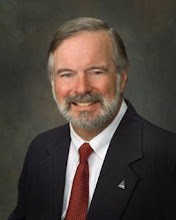 |
| Click to enlarge. Source: http://www.rttsweb.com/outsourcing/statistics/, Accessed 28 September, 2012 |
That is America's present plight.
Perhaps it is the plight of all the "industrialized" states of The West.
We have lost much of our industrial base, most especially in high-volume industrial products such as steel, textiles, automobiles, and electrical and electronic devices, but increasingly in the technically sophisticated products that make other products, such as punch presses, machine tools, plastic molding equipment, textile machinery, mining machinery, as well as tool-and-die work and software manufacturing.
I fear that the next World War will be a nuclear war. We in the West have not the industrial capacity to fight a global conventional war anymore. Nor, I fear, do we have the know-how in our imaginations and in our fingertips to create in needed volumes the tools, machines, and factories necessary to build such capacity quickly enough to respond to a major conflict without resorting to the nukes. I find that downright frightening.
Over the past 50 years, we in the West have shipped these industrial capabilities to the East.
Many companies have sent their best (and often most senior) toolmakers, millwrights, and production engineers overseas to teach the newcomers to heavy industry how to do that at which we were once the best. And the bright and skilled young people in our western societies who, in the 1930s or 1940s would have become skilled tradesmen, are now going to college, never again to dirty their hands. This is the meaning of effete: to prefer any white-collar job, no matter how low-paying, to being seen as a member of the "working class." Such thinking (and such public policy) has made plumbers scarce and rich, and teachers and bank tellers plentiful and poor. The questionable quality of their education aside, Western universities produce far more graduates than our economies need, and our societies have far too few skilled technicians of many kinds.
After the "successful" invasion of Iraq in 2003, we failed to get the electricity to work in that country's major cities for three or more years! We built in that much time the myriad armaments, thousands of ships and tens of thousands of airplanes with which to fight World War II on three continents, and in five oceans! Why, in 2003, couldn't our President have called the CEOs of GE and Westinghouse together and said, "Your country needs you to get the lights on in Baghdad, and do it in three months!" I fear it was because Westinghouse was no more, and GE was largely a hollow corporation. I fear we have become industrially incompetent.
And it is not only Americans who have invested in this easterly tidal wave of industrial know-how. Was not Volkswagen the leading producers of passenger cars in China throughout the 1990s? (GM/Buick was a distant second.)
Meanwhile, even as much of The East has embraced the profit motive, The West has pursued socialism, albeit "creeping socialism," promising ever-more to its less productive citizens in the name of invented "rights," and misconstrued "compassion." Is it not more compassionate to get a family off welfare by providing a job that pays a living wage than to trap that family in dependency on governmental handouts? Where is human dignity? Where is one's pride? Once the majority of citizens live off the government, who will be left to pay taxes? Has the West learned nothing from the collapse of Communism?
If we live past 21 December 2012, which some predict we shall not, we may find that we miss our freedom, and the self-reliance that won it for us, and that built our great Western Civilization. Where is Ralph Waldo Emerson, when we need him?
Oh, but Emerson's "Self-Reliance" is an essay longer than two pages! In fact, I just printed it out on 15 pages. It may be the most important set of ideas ever written about democracy, and about what makes democracy work. But, will anyone take the time to read it?
I am a blessed man of a blessed generation. I have lived in a golden age. So, I do not begrudge prosperity and happiness to anyone. If the peoples of the East and South are willing to work hard and to learn industrial skills, then I shall applaud the economic progress that those efforts bring them. It might become a great thing for Humanity, if the wealth of industrialization is more broadly distributed across the globe. But, should we in the West be exiting the manufacturing sector? Should decisions to outsource be made without any thought of their national or regional strategic effects?
Manufacturing, the function wherein I trained at General Motors, and in which I managed at two subsequent corporations, is little-appreciated in the boardrooms of too many American corporations. A factory is not a black box from which flow products and problems, costs and strikes. A factory is a strategic resource, filled with can-do people and creative talent. It produces not just "goods," but also flexibility, on-time deliveries, quality, and ideas for improvements in all of those. Without a factory, a product-company is hollow. It becomes like a fortune-teller on the boardwalk, selling what it knows little about to people it cares nothing about, albeit at high margins. Do we want to be such pure marketeers? Or do we want to create real goods and real value?
Think twice, dear reader, before you allow your company to outsource your products. You don't know what you've got, until you lose it.
_________________________________________
* "You don't know what you've got, until you lose it," by songwriters Paul Hampton and George Burton, 1961.


